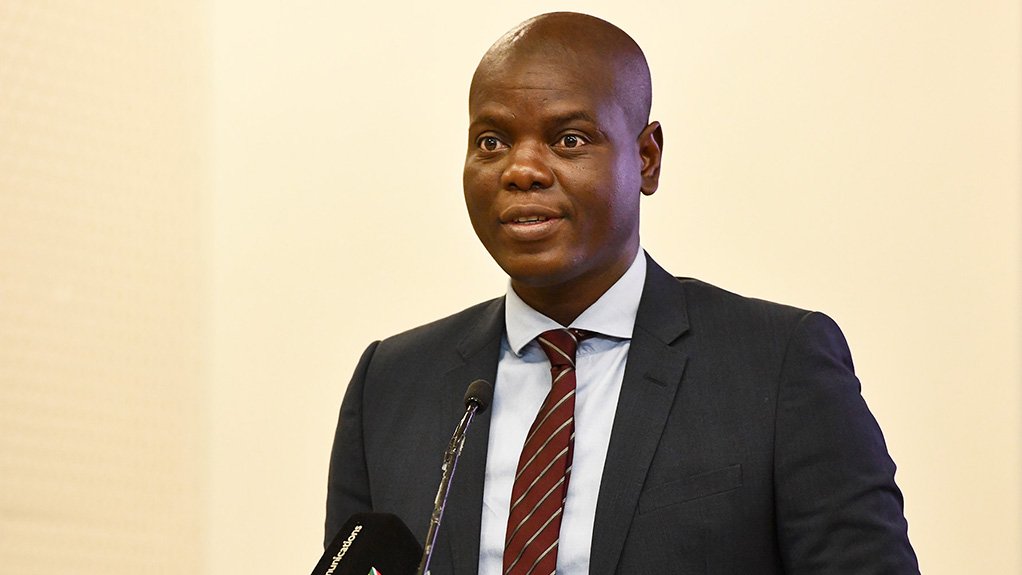/ MEDIA STATEMENT / The content on this page is not written by Polity.org.za, but is supplied by third parties. This content does not constitute news reporting by Polity.org.za.
Issues raised within the correctional services by the Police and Prisons Civil Rights Union (POPCRU) under the leadership of outgoing President Dr Zizamele Cebekhulu-Makhaza have been addressed and improved, said Minister of Justice and Correctional Services, Ronald Lamola.
Lamola addressed the POPCRU 10th National Congress on Tuesday, 7 November, reporting on constructive changes that POPCRU has influenced within correctional services and the criminal justice system as a whole.
“It’s a great honour for me to be in this Congress of POPCRU to provide a message of support on behalf of the Department of Correctional Services and Justice, because when I came into office, the first trade union that requested a meeting with me and put a number of issues on the table was the leadership of POPCRU,” he said.
Among the pain points tabled by POPCRU during their continuous engagements with Lamola since he entered office in 2019 include unfair promotion structures, shift policy concerns, the self-sustainability of the correctional service system, and uniform shortages.
Lamola noted that since these concerns were brought to his attention, he has worked with POPCRU to put together a programme to achieve the goals they set out, reporting that the Department of Correctional Services has since adjusted its promotion policies to ensure fair and transparent promotions based on merit. Furthermore, the Department has established a uniform manufacturing plant in Witbank staffed by inmates, and transformed this into a state-of-the-art facility with the capacity to produce all the uniforms “for the entire cluster and beyond.”
“Building a capable state is no longer a dream. We are living it,” he emphasised.
On the issue of self-sustainability of the correctional services, he noted that inmates are now also able to participate in their entrepreneurial programme to work on farms that supply food to prisons.
“DCS now knows the price of producing a loaf of bread, which is R7.20, and can guide the state on buying at a reasonable price.”
He further lauded POPCRU for taking the initiative to host a Policing Indaba in August this year, whereby actionable changes were outlined for the improvement of the entire criminal justice sector. He hopes to get input from POPCRU on the draft amendments to the Criminal Procedure Act (CPA) of 1977 to better serve justice in a democratic state – one of the strategic goals that came out of the Policing Indaba.
“We found the Criminal Procedure Act already in office when we came in, and it needs to be reviewed to better serve today’s society.”
Calls were made during the Indaba for the CPA to be made more victim-friendly and to update it in line with technological advances.
Lamola further said that the so-called “mafia state” needed to be addressed to restore society’s faith in the criminal justice system. South Africa also needs to address socioeconomic growth and inequality, as research has proven that unequal countries have high levels of crime, such as is the case in Mexico and Brazil.
Speaking on corruption and a compromised system throughout the entire value chain, he noted that some challenges are embedded in the system, but there is also a human factor at play.
“But people should have confidence in the criminal justice system, and it is our duty as servants of justice to eradicate members within the system who are self-serving to ensure that the system is credible and reliable,” he said.
“The law must not have eyes. It doesn’t matter who is committing the crime, the law must be unbiased.”
In closing, he congratulated the outgoing leadership of POPCRU, stating that he looks forward to the outcomes and resolutions from the Policing Indaba being implemented “because it will help us shape the criminal justice system.”
“It raises our spirits when ministers within our sector are willing to engage and collaborate to ensure better working conditions for our members. We are seeing the success of collective bargaining, and value correctional services as a department that is strategically positioned to address our social ills in South Africa,” concluded Dr Cebekhulu-Makhaza.
Issued by PR Works on behalf of POPCRU
EMAIL THIS ARTICLE SAVE THIS ARTICLE ARTICLE ENQUIRY
To subscribe email subscriptions@creamermedia.co.za or click here
To advertise email advertising@creamermedia.co.za or click here











